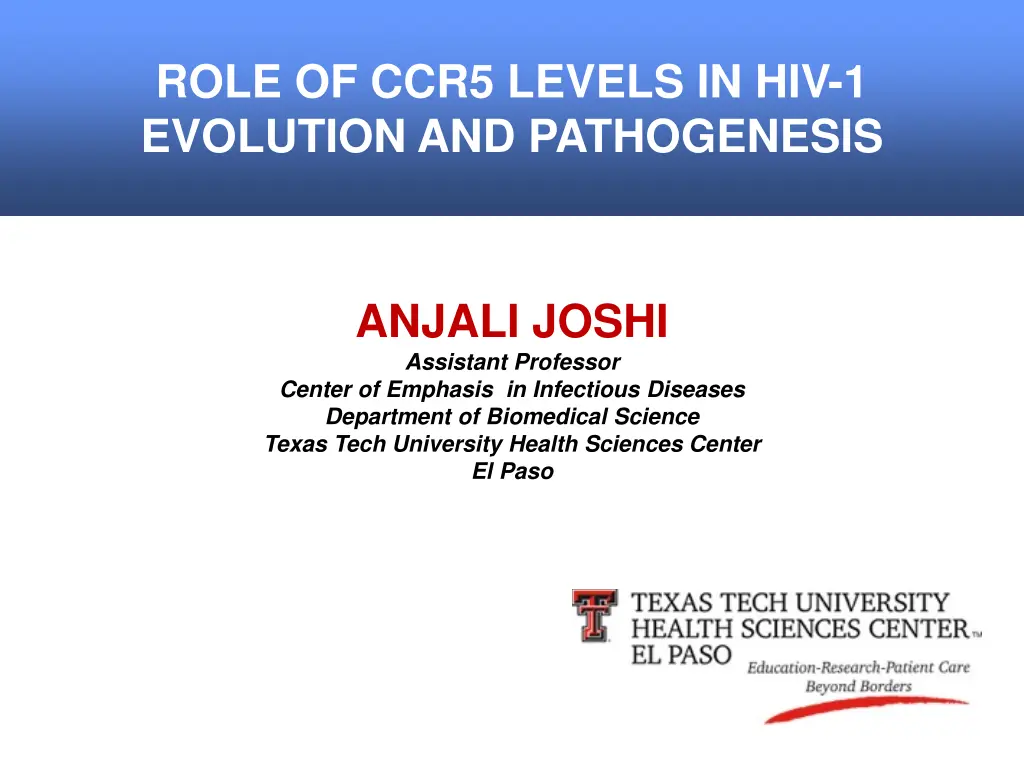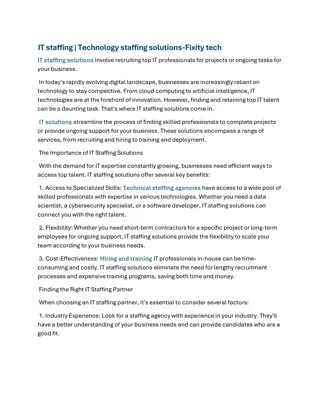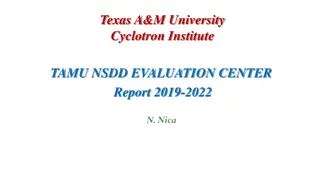
Understanding the Impact of CCR5 Levels on HIV Evolution and Disease Progression
Explore the intricate role of CCR5 levels in HIV-1 evolution and pathogenesis, including its function as a co-receptor for viral entry, variations in the human population, and how varied CCR5 levels affect HIV evolution, drug resistance, and disease progression. Discover the relationship between CCR5 mutations and disease susceptibility, progression rates, and resistance to HIV infection. Unveil the adaptation of CCR5-tropic HIV YU-2 to replicate in cells expressing low CCR5 levels and maintenance of R5 tropism in low CCR5-adapted viruses. Delve into the increased resistance of low CCR5-adapted viruses to CCR5 antagonists.
Download Presentation

Please find below an Image/Link to download the presentation.
The content on the website is provided AS IS for your information and personal use only. It may not be sold, licensed, or shared on other websites without obtaining consent from the author. If you encounter any issues during the download, it is possible that the publisher has removed the file from their server.
You are allowed to download the files provided on this website for personal or commercial use, subject to the condition that they are used lawfully. All files are the property of their respective owners.
The content on the website is provided AS IS for your information and personal use only. It may not be sold, licensed, or shared on other websites without obtaining consent from the author.
E N D
Presentation Transcript
ROLE OF CCR5 LEVELS IN HIV-1 EVOLUTION AND PATHOGENESIS ANJALI JOSHI Assistant Professor Center of Emphasis in Infectious Diseases Department of Biomedical Science Texas Tech University Health Sciences Center El Paso
CCR5 ACTS AS A CO-RECEPTOR FOR HIV ENTRY CXCR4/ CCR5 CD4 gp120 AMD gp41 T20/C34 Garg and Blumenthal, Cell Mol Life Sci. 2008.
CCR5 LEVELS VARY IN THE HUMAN POPULATION 58755 A/G 59029 A/G 59402 A/G 58934 G/T 59353 T/C 59356 C/T 59653 C/T CCR5 delta 32 CCR5 Promoter 3 5 562 594 CCR5 WT 1) CCR5 delta 32 decreases CCR5 levels on the surface. 2) Promoter polymorphisms. CCR5 delta 32
ROLE OF CO-RECEPTOR LEVELS IN HIV DISEASE PROGRESSION CCR5 delta 32 (CCR5 32-/- or +/-) mutations have been shown to be associated with disease susceptibility and progression rate. Individuals homozygous for CCR5 32-/- are resistant to HIV infection. Individuals heterozygous CCR5 32+/- show slower progression to AIDS via unknown mechanism.
HOW DO VARIED CCR5 LEVELS IN THE HUMAN POPULATION AFFECT: HIV evolution Drug resistance Disease progression
HOW DO VARIED CCR5 LEVELS AFFECT HIV EVOLUTION CD4 CCR5 Anjali Joshi et al. J. Biol. Chem. 2011;286:36404-36413
CCR5 TROPIC HIV YU-2 ADAPTS TO REPLICATE IN CELLS EXPRESSING LOW LEVELS OF CCR5 Emergence of adapted virus
LOW CCR5 ADAPTED VIRUS MAINTAINS R5 TROPISM Clone E1A YU2 # E170K A423V E170K N298Y A423V E170K N298Y D623E E170K N298Y D623E N298Y E334K A136T N298Y N298Y T449M P714L G724D E1B E2A E2E E3B E3C E3D N298Y MUTATION CONFERS ADAPTATION TO LOW CCR5
LOW CCR5 ADAPTED VIRUS SHOWS INCREASED RESISTANCE TO CCR5 ANTAGONISTS
HOW DO VARIED CCR5 LEVELS AFFECT DISEASE PROGRESSION IN HIV+ PATIENTS? CCR5 delta 32 decreases CCR5 levels on the surface. Promoter polymorphisms also decrease CCR5 surface expression levels.
Haplotype 58755 HHA HHB HHC HHD HHE HHF HHG HHH 58934 G T T T G G G G 59029 G G G G A A A A 59353 T T T T C C C T 59356 C C C T C C C C 59402 A A G A A A A A 59653 C C C C C T C C A A A A A A G A All HIV+ Viremic (100 copies >)
CONCLUSIONS HIV adaptation to low CCR5 levels results in changes in the Envelope that enhance CCR5 binding, Env pathogenicity and increase resistance to CCR5 targeting drugs. HIV infected patients with non-HHC type CCR5 promoter haplotype show lower CD4 counts. CCR5 levels play a significant role in HIV evolution, drug resistance and pathogenesis.
CCR5 LEVELS IN HIV PATHOGENESIS Anjali Joshi et al. J. Biol. Chem. 2011;286:36404-36413
ACKNOWLEDGEMENTS Patients who participated in this study. BII Singapore: Raphalel Lee Sebastian Maurer-Stroh . TTUHSC Tan-Tock Seng Hospital Singapore: Dr. Oon Tek NG Dr. Palvinder Kaur. Dr. Debabrata Mukherjee-Internal Medicine. Dr. Armando Meza-Internal medicine. Dr. Ogechika Alozie-TTUHSC HIV clinic. Dr. Himanshu Garg-BMS. Dr. Zuber Mulla-OB GYN Dr. Jayanta Gupta-Biostatistics. Melina Sedano and Erin Punke. Funding: 1RO3AI095040-01A1 PI: Joshi R03AI102621-01A1 PI: Joshi 1 R15 AI116240-01A1 PI: Garg TTUHSC intramural seed grant program.
THANK-YOU http://www.ttuhsc.edu/images/som_foster.jpg QUESTIONS?






















